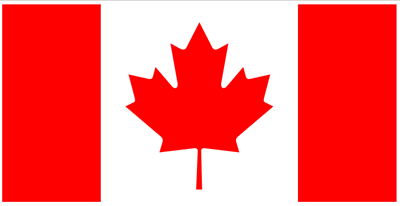Bachelor's, Master's and PhD programs in Canada

Canada is one of the most preferred countries in the world, by vast number of international students every year. A degree, diploma or certificate from a Canadian University or any other Canadian higher educational Institution is recognized instantly, internationally. The publicly funded and private Canadian education is highly regarded in business, government and academic circles around the globe.
Bachelor's Programs in Canada
Canada is one of the most preferred countries in the world, by vast number of international students every year. A degree, diploma or certificate from a Canadian University or any other Canadian higher educational Institution is recognized instantly, internationally. The publicly funded and private Canadian education is highly regarded in business, government and academic circles around the globe. Undergraduate or the bachelor's degrees are awarded by Canadian universities after four years of full-time study and lead to graduate level studies. The fees structures of Canada in undergraduate degree programs are much lower than other similar countries.
Canada offers undergraduate or Bachelor's programs through a wide choice of about ninety Universities and one hundred and fifty colleges and technical institutes, in all possible academic fields. For the international students, to get a Bachelor's admission, apart from the usual eligibility conditions, 'letters of reference or recommendation letters' play a vital part in the admission. Further the application essays or the personal essays or the statement of purpose (SOP) of students also play a greater role in getting admission. Many of the Canadian Universities have their own guidelines in admitting the international students. Canadian undergraduate degrees usually take from three to five years to complete.
Master's Degree Programs in Canada
The four different types of higher educational institutions in Canada are Universities, University Colleges, Community Colleges, Technical Institutes or Career Colleges offer postgraduate or master's degrees and diplomas, possibly in all subject areas. The minimum eligibility conditions for participating master's programs in Canadian Universities are - a relevant graduate degree, at least two academic letters of reference and other qualifications as specified in the respective Universities or Colleges and TOEFL, GRE or any other specified standardized test score. Master's programs in Canada, generally require two years of full time study along with course work and submission of thesis.
Master's programs in business study areas i.e. MBA programs in Canada will normally require a minimum of two to three years of relevant work experience, GMAT, TOEFL score and a 4-year graduate degree. While generally the duration of master's programs in Canada is two years, students may find some institutes in Canada that offer a fast track post graduation choice. A master's degree or diploma from Canadian educational institutions is instantly recognized around the world for its highest standards. The Commonwealth scholarship is one source of funding for Canadian Universities at the post-graduate level but it is restricted to a very limited number of students that have exceedingly high intellectual promise and who live in Commonwealth countries.
PhD Programs in Canada
In Canada, a PhD or a doctoral degree program is a high level master's degree program that usually requires four to seven years of study on full time basis. The PhD degree is offered to students from the higher educational Institutions of Canada after a disciplined research work and submission of thesis based on the research work. The minimum requirements to get PhD admission in Canadian higher educational Institutes normally are:
• A master's degree in the relevant subject,
• At least two academic letters of reference, and
• Other TOEFL, GRE or any other specified standardized test scores.
Doctoral programs are available at two different levels in Canada - Doctoral and Postdoctoral programs. Post-doctoral programs are much more specialized and research oriented programmes. One of the most vital features in granting post-doctorate fellowships in Canada is the personal network established between the interested applicant and the faculty member within the institution. There are different ways to avail the scholarships or funds for PhD programs. They come in different ways such as doctoral scholarships, fellowships, research and teaching assistantships, loans, personal savings and support from an employer and employment earnings among others. Depending on the program and the university, a doctoral aspirant might have to meet a performance requirements, produce a literary composition, research, write and defend a dissertation, report on research findings, publish research results or demonstrate proficiency in a second language in order to graduate to get the title of 'Doctor'.
source: i-studentadvisor.com, Studying in Canada
Posted on: 2011-05-01































